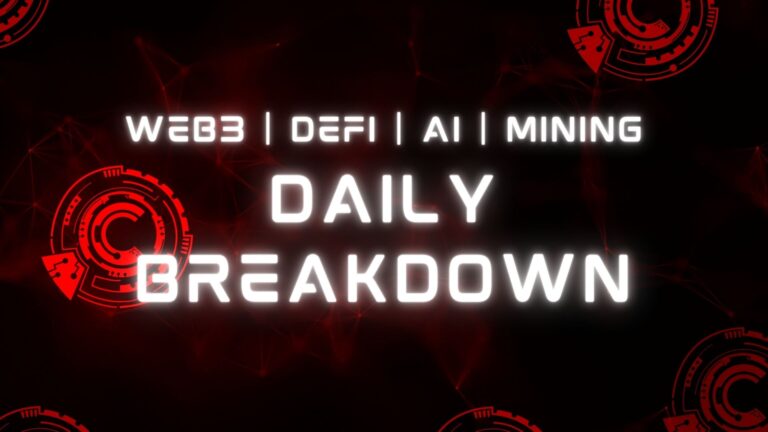
As hashtags like #WEWILLNOTCOMPLY trend globally, it signals more than just ephemeral social media activity. It reflects a deep-rooted mistrust in governance systems, across borders and demographics. The crisis of public trust has been exacerbated by recent experiences, such as the handling of the COVID-19 pandemic. However, technology, specifically blockchain and cryptocurrencies like Bitcoin, offers avenues for restoring faith and autonomy in systems of governance.
The Crisis of Trust: A Post-COVID World
The COVID-19 pandemic was a revelatory period for governmental effectiveness — or the lack thereof. The world was witness to administrative failures and inconsistencies, raising critical questions about public trust. From disorganized healthcare systems to contradictory public health messaging, the issues have been not just procedural but symbolic of larger systemic problems. The pandemic exposed the unsettling reality that governments, even those democratically elected, may not always work in the best interests of their citizens.
The Forgotten Essence of Democratic Governance
Lost amidst political banter and red tape is the fundamental understanding that governments are employed by the people and are accountable to them. Yet, this social contract seems increasingly tenuous. Citizens, far from being subjects to be controlled, have the right to employ, critique, and even dismiss their governments. This core tenet of modern democratic states has been under noticeable stress, leading to grassroots movements and mass calls for non-compliance.
Restoring Autonomy through Decentralization: The Promise of Blockchain
In a climate of eroding trust, there’s a growing call for systems that return control to the hands of citizens. Blockchain technology, characterized by its decentralization, could be a significant part of the solution. By distributing data across a multitude of nodes and thereby eliminating a central point of control, blockchain provides an immutable, transparent record of transactions.
Blockchain for Voting and Public Finance
The immediate applications of blockchain in governance can be seen in voting systems. Utilizing cryptographic techniques, blockchain can deliver both anonymous and verifiable voting, potentially eliminating fraud and enhancing electoral integrity. Furthermore, a public blockchain could bring unprecedented transparency to public finances, allowing real-time scrutiny of government expenditure.
The Individual’s Quest for Autonomy: #WEWILLNOTCOMPLY
Blockchain is not just a technological alternative; it’s a political statement. When traditional platforms fail to represent the citizenry adequately, it becomes necessary to build new ones. By favoring decentralization, society can make a conscious choice to stand for freedom, transparency, and individual autonomy.
Financial Autonomy Through Bitcoin
In the midst of political actions and social movements, holding Bitcoin becomes a powerful form of expression. While it is often dismissed as merely a financial investment, its implications are profound. Bitcoin, operating on sound mathematical principles, offers a way to store value outside an inflationary system controlled by centralized entities. It’s an opportunity to opt-out of a system that continually erodes individual purchasing power for agendas that may not align with the public interest.
The Final Measure of a Democratic Society
Ultimately, the health of a democratic society can be evaluated by the level of autonomy it affords its citizens — the freedom to speak, to choose, and to transact without unwarranted interference. Decentralized financial systems, exemplified by Bitcoin, serve as critical components in a more comprehensive vision for individual freedom.
Conclusion: The Path Forward
As hashtags fade and trends change, the core issues that spark mass movements like #WEWILLNOTCOMPLY remain. Technology like blockchain and Bitcoin can serve not just as tools but as pillars for a new social contract built on mutual trust and individual autonomy. In a time when these ideals are under threat, such technologies offer more than innovation; they offer a roadmap towards a society that respects and upholds the dignity and agency of its citizens.
By opting for technologies that democratize information and financial systems, we take a collective step toward reclaiming the autonomy and trust that form the bedrock of any functioning democracy.
Thank you for reading “Reclaiming Trust and Autonomy in Governance: The Role of Blockchain and Bitcoin Amidst a Global Wave of Discontent“.
- Subscribe to our newsletter: ConsensusProtocol.org
- Follow us on Twitter: @ConsensusPro
Sources:
- Public Trust in Government: 1958–2021, Pew Research
- Blockchain Basics: An Introduction, by Daniel Drescher
- Modern Democracies and Theories of Governance
- COVID-19 Response and Government Actions, World Health Organization
- Social Contract Theory in Political Philosophy
- Financial Autonomy Through Bitcoin: A Political Action for the Modern Age
Recent Stories

Reclaiming Trust and Autonomy in Governance: The Role of Blockchain and Bitcoin Amidst a Global Wave of Discontent
As hashtags like #WEWILLNOTCOMPLY trend globally, it signals more than just ephemeral social media activity….

Disruptive Waves: How AI is Changing the Financial Landscape
TL;DR: Artificial Intelligence (AI) is making significant strides in reshaping the future of finance…

Today’s Highlights From Within the Crypto World
TL;DR: This article delves into key developments in the crypto world, covering legal, regulatory, and…

Generative AI & Copyright Law: The Clock is Ticking for Regulatory Clarity
TL;DR: The U.S. Copyright Office is nearing the end of its consultation period for new regulations concerning…
No posts found
